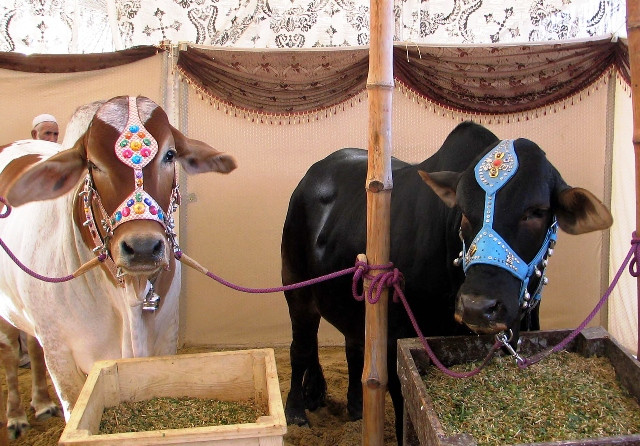Fatter cows: US offers to help veterinary university
Help offered in improving livestock production, gaining access to new markets for halal meat.

The United States Department of Agriculture (USDA) has offered collaboration to the University of Veterinary and Animal Sciences (UVAS) in various livestock sectors.
The offer of assistance mentions meat production, dairy genetics, food safety and hygiene. Assistance has also been offered in training master trainers in animal production and responding to natural calamities.
A five-member USDA delegation called on UVAS vice chancellor Talat Naseer Pasha on Wednesday to discuss how to enhance meat production for export. The delegation led by Agriculture Consul Richard Todd Drenman comprised US Consulate Lahore Economics Officer Frank P Talluto, Economic Officer Emerita Torres, Senior Agriculture Officer Shafiqur Rehman and economic specialist Shahid Abbas.
Drenman said the US government wanted to help improve the dairy potential of indigenous breeds and work with Pakistan to improve animal genetics. He said it was important to develop sustainable links between Pakistani and the US institutions.
Earlier, the UVAS VC Dr Pasha briefed the delegation on the university’s teaching and research projects. He said collaboration between the two countries would be mutually beneficial. He said that Pakistan lagged in animal production expertise. “Collaboration with the USDA can help us access the Middle Eastern, Malaysian and Indonesian markets,” he said.
He said Pakistan had good buffalo breeds which were producing 67 per cent of the country’s milk.
He said there was no progeny testing programme and poor awareness of how to select the best bulls to improve breeds.
He discussed the major constraints facing the livestock sector, including lack of genetic improvement, poor nutrition, heath constraints, unorganised marketing and lack of human resources, including veterinarians, para-vets, dairy supervisors and skilled labour. He said the university’s diagnostic laboratory and quality operation labs were now fully equipped and had been internationally accredited.
Published in The Express Tribune, August 9th, 2012.


















COMMENTS
Comments are moderated and generally will be posted if they are on-topic and not abusive.
For more information, please see our Comments FAQ